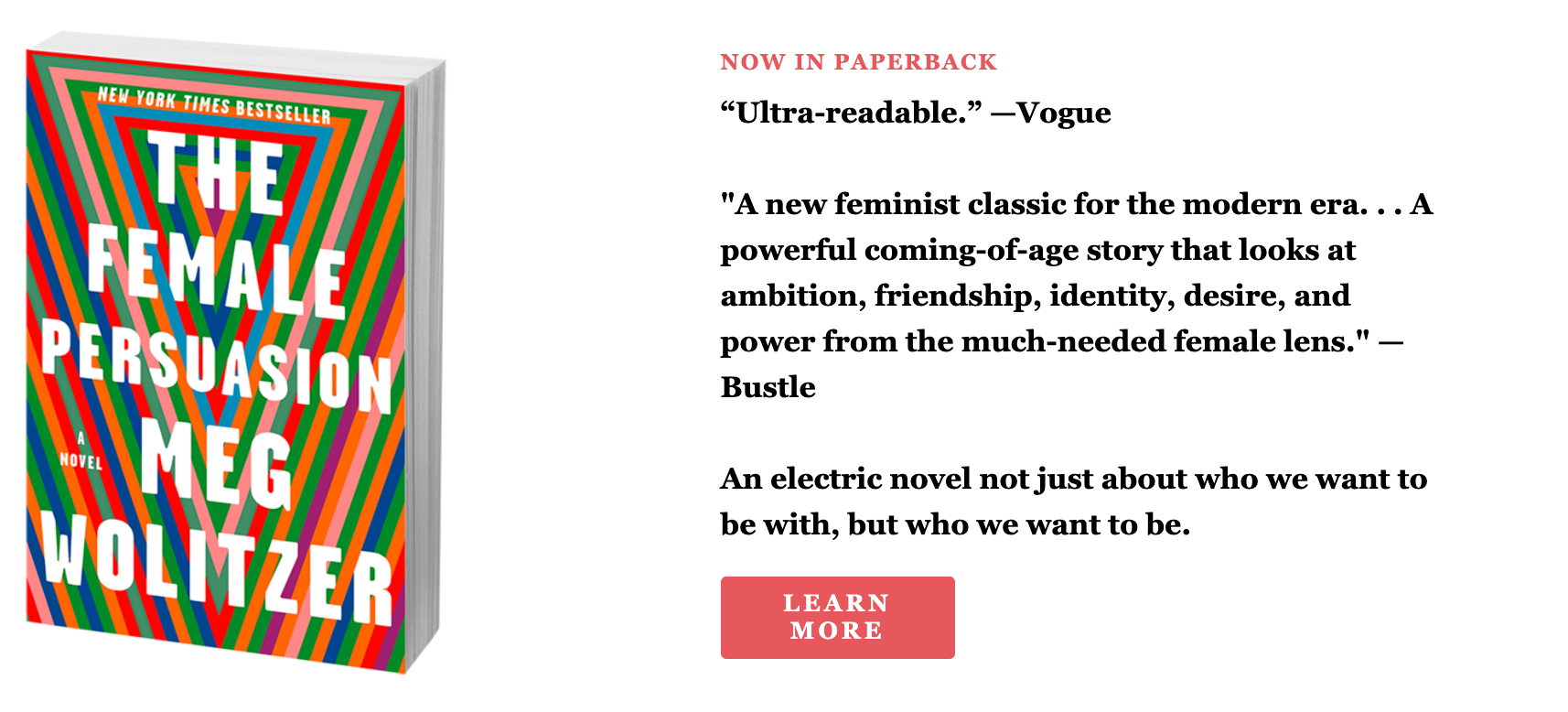
This month’s book club choice was ‘The Female Persuasion’, which initially looked like a non-fiction text to me, but is actually a contemporary American novel. Acclaimed as ‘accurate’ and ‘timely’ in its descriptions of feminism in the noughties, it has been well reviewed but not hit the big-time (in the UK) in the same way that Sally Rooney’s novels have.
Following the coming-of-age of a young woman in the US, the writing is extremely poetic and definitely driven by characters rather than plot. College student Greer navigates her way into the working world under the guidance of role-model 70’s feminist Faith Frank, tripping up and then re-configuring her work and relationships as she goes.
In chronicling the character’s journey of personal development, Wolitzer uses an extraordinary number of adjectives — some of which are absolutely on-point, and some of which made me re-read the sentence just to count how many words she could have cut and it still have made sense. This is just personal preference though. Some readers like things to be left to their imaginations, but some enjoy having details articulately explained without a shadow of a doubt. As a writer, I only struggled with these excessive descriptions when they jolted me out of the flow of the story… Greer’s ‘furniture brown hair’ for example. If I have to stop to question the word choice, I’m not sure that it’s working for me…
Adjectives aside, the novel was completely captivating and I devoured it within a couple of days. I really cared about the characters and wanted to know what happened to them, even if I didn’t necessarily like them very much. The ending was perhaps a bit underwhelming — if you want a ‘reward’ or ‘closure’ at the end of the story, I’m afraid to say that you don't really get it. Greer has grown up and published a book herself, and seems to be turning into a contemporary version of her now-not-so-idolised role model. The novel structure is more like a plot diagram for real life, in that it just ‘plods on’… and then stops because the maybe word count is long enough?
I’m trying not to be negative because I did enjoy the book (and it has a very nice cover), but I wonder if the reason it didn’t do as well here as in the US is because it is so overtly American. Personally, this kind of ‘wow I really see myself in that’ writing only works if I can truly relate to characters’ experiences. In this instance, the unfamiliar cultural touchstones made me feel too much like I was reading my way through a slightly contrived and clichéd US sitcom.
Overall, this isn’t a book I’d grab off the shelf and rush to recommend to everyone, but I am glad that I read it. It was strangely comforting and easy, even though the feminist issues it addresses are still so difficult.
Perhaps that in itself is impressive, and something we should give Wolitzer due credit for…
